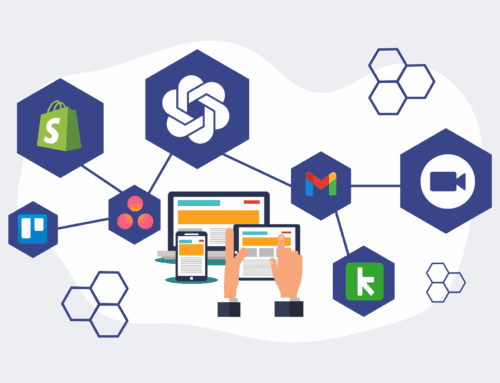Navigating the Legal Landscape of AI in Recruitment Technology
The promise of Artificial Intelligence in recruitment is undeniable: faster candidate sourcing, reduced bias, increased efficiency, and a truly data-driven hiring process. Yet, as businesses eagerly adopt these transformative tools, a complex and rapidly evolving legal landscape emerges. For HR leaders, COOs, and recruitment directors, understanding and proactively addressing these legal nuances isn’t just a matter of compliance; it’s essential for mitigating risk, protecting reputation, and ensuring the ethical integration of AI into their talent acquisition strategies.
At 4Spot Consulting, we’ve witnessed firsthand how the allure of AI’s efficiency can sometimes overshadow the critical need for legal foresight. The shift from manual processes to AI-powered operations introduces new dimensions of responsibility, particularly concerning data privacy, algorithmic bias, and transparency. Businesses operating in a globalized talent market must contend with a patchwork of regulations, from the EU’s GDPR and upcoming AI Act to state-specific laws like California’s CCPA and New York City’s Local Law 144, which specifically targets automated employment decision tools (AEDT).
The Evolving Challenge of Algorithmic Bias
One of the most significant legal and ethical challenges lies in algorithmic bias. AI models are only as good as the data they’re trained on. If historical hiring data reflects existing societal biases, an AI recruitment tool can perpetuate and even amplify those biases, leading to discriminatory outcomes. This isn’t just an ethical dilemma; it’s a legal minefield. Employment discrimination laws, such as Title VII of the Civil Rights Act in the US, prohibit discrimination based on protected characteristics like race, gender, and age. If an AI tool inadvertently screens out qualified candidates from protected groups, the employer, not just the AI vendor, can face significant legal liability.
To navigate this, a strategic approach is paramount. It involves rigorous auditing of AI algorithms for disparate impact and treatment, establishing clear policies for human oversight, and committing to continuous monitoring and recalibration. For companies engaging with 4Spot Consulting, our OpsMap™ diagnostic proactively identifies where such risks might emerge within existing or proposed AI systems, laying the groundwork for ethically sound and legally compliant automation.
Data Privacy and Security: A Global Maze
Recruitment involves handling a vast amount of sensitive personal data—resumes, contact information, employment history, and sometimes even background check details. AI tools often collect, process, and analyze this data at scale, raising significant privacy concerns. GDPR, CCPA, and similar regulations mandate strict rules for data collection, storage, consent, and the right to be forgotten.
Key Privacy Considerations for AI in Recruitment:
- Consent: Clear and informed consent for data collection and processing, especially when AI tools are involved, is crucial. Candidates must understand how their data will be used.
- Data Minimization: Only collect data that is truly necessary for the recruitment process.
- Security Measures: Robust cybersecurity protocols are essential to protect candidate data from breaches.
- Cross-Border Data Transfers: If your AI recruitment solution involves data transfer across different jurisdictions, ensure compliance with relevant international data transfer mechanisms.
Ignoring these aspects can lead to hefty fines, reputational damage, and a loss of candidate trust. Our work with clients often involves building “Single Source of Truth” systems and secure data pipelines, ensuring that all data—including that processed by AI—is handled in compliance with global privacy standards, from intake to archival.
Transparency and Explainability
As AI tools become more sophisticated, the concept of “explainability”—the ability to understand how an AI arrived at a particular decision—becomes increasingly vital from a legal standpoint. Regulations like NYC’s Local Law 144 now require employers to provide notice to candidates about the use of AEDTs, along with information on the data collected, the categories it uses, and how it impacts hiring decisions. Candidates may also have the right to request an alternative selection process.
This push for transparency means that employers cannot simply defer to the AI vendor. They must be prepared to articulate how their AI recruitment tools function, how fairness is ensured, and what recourse candidates have if they believe a decision was unjust. This demands a deeper understanding of the AI systems deployed, a level of insight that 4Spot Consulting helps business leaders achieve through our strategic implementation and ongoing optimization services (OpsBuild and OpsCare).
Building a Proactive Compliance Strategy
Navigating the legal landscape of AI in recruitment is not a one-time fix but an ongoing commitment. It requires a proactive, strategic approach that integrates legal and ethical considerations into every stage of AI adoption. Companies that thrive in this new era will be those that prioritize:
- Legal Counsel Engagement: Regularly consult with legal experts specializing in AI and employment law.
- Vendor Due Diligence: Thoroughly vet AI vendors, questioning their data practices, bias mitigation strategies, and compliance frameworks.
- Internal Audits and Reviews: Implement regular internal audits of AI systems to monitor for bias, privacy compliance, and effectiveness.
- Clear Policies and Training: Develop comprehensive internal policies for AI use and provide training to HR and recruitment teams on ethical AI practices and legal requirements.
- Human Oversight: Maintain human oversight in key decision-making processes, particularly where AI provides recommendations rather than final decisions.
At 4Spot Consulting, we empower high-growth B2B companies to embrace AI strategically, ensuring that efficiency gains are balanced with robust compliance and ethical responsibility. Our OpsMesh framework is designed to build AI-powered operations that are not only scalable and cost-effective but also legally defensible and trust-building. We don’t just implement technology; we architect solutions that secure your business for the future.
If you would like to read more, we recommend this article: The Future of Talent Acquisition: A Human-Centric AI Approach for Strategic Growth






